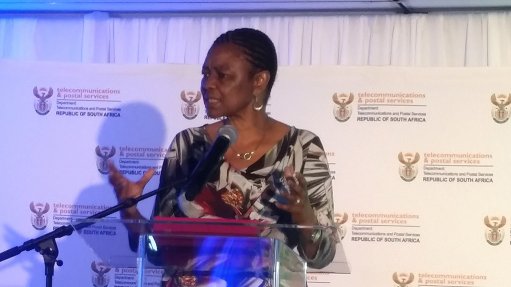
Home Affairs Minister Hlengiwe Mkhize
Excellency, the Chairperson of ExCom 68,
The esteemed High Commissioner,
Honourable Ministers and Deputy Ministers,
Excellencies,
Distinguished guests,
Ladies and gentlemen.
Chairperson,
I wish to preface my statement by recalling the words of the former United Nations Secretary-General, Mr Ban Ki-moon when he said that ‘Africa is the critical location of humanitarian work’. This statement of fact simply reaffirms that our Continent continues to bear the burden of hosting the largest numbers of forcibly displaced persons. We accordingly align ourselves to the statement made on behalf of the African Group.
South Africa commends the landmark New York Declaration which reflects a strong endorsement of the need for greater international cooperation, solidarity and equitable burden-sharing and responsibility for hosting and supporting the forcibly displaced persons. The New York Declaration elaborated two UN Global Compacts to be adopted in 2018, one for refugees and the other for safe, orderly and regular migration. Most importantly, these processes shall remain State-driven.
This global compact is most relevant to the mandate of the UNHCR and will help the global community find more equitable ways to share the responsibility as well as the burden for hosting and supporting the world’s refugees. Most importantly, support to countries and communities who host them to avoid unnecessary social tensions which at times lead to fatalities that are a consequence of competition for scarce resources. Having said that, it is important that the root causes of forced displacement, which is underdevelopment, should be addressed by the international community if a durable solution has to be found.
Chairperson,
My delegation would like to underscore that a durable solution to underdevelopment should creatively explore among others: Debt relief; Market access; Equitable trade; Transfer of technology; Promotion of foreign direct investment; Intensifying efforts to meet the internationally agreed development targets; Agriculture and food security; Investment in health infrastructure; Education and cultural development; and importantly, Respect for Sovereignty.
Chairperson,
South Africa has made significant strides towards the realisation of the objectives of the Global Compacts and the Comprehensive Refugees Response Framework; through firm recognition of the positive role played by migrants in the country’s National Development Plan Vision 2030 and the recently adopted White Paper on International Migration, which also dedicate a full chapter on the management of asylum seekers and refugees.
The government has invested in technology upgrades at the Refugee Centres, beginning with the busiest refugee centre located in the country’s economic heartland, renamed after our own Nobel Laureate, ‘Desmond Tutu’, in Gauteng Province. This investment in technology upgrade has realised efficiencies and qualitative improvements in processing new asylum applications, which include amongst others, paperless capturing of asylum claims, allowing self-services for existing asylum applicants wishing to extend permits where adjudication is still pending and booking terminals for persons seeking various services such as family joining.
In the period between 2006 and 2015, South Africa has received over one million asylum applications, amounting to one third of the asylum applications received by the whole of European Union as a block. All these applicants have been adjudicated at the first instance, whilst a significant number are awaiting finalisation of their appeals.
Persons who are indefinite refugees are able to apply for Permanent Residence, which in turn paves the way for citizenship. Since 2016 until June 2017, a total of 2123 applications for permanent residency certification have been considered, and 924 have already received certification.
Chairperson,
Our ports of entry remain open to asylum seekers and asylum seekers have access to health services and education opportunities.
In reaffirming our commitment to the rule of law and universal declaration of human rights, we also ensure that failed asylum seekers and illegal migrants are treated in a humane manner throughout the process of repatriating them to their countries of origin. We work closely with partners like International Red Cross, the South African Human Rights Commissions and advocacy groups, this we do motivated by our own high standards of Ubuntu,which in essence recognises that all humanity is deserving of dignity.
Chairperson,
The philosophy of Ubuntu (I am, because you are) and the spirit of international solidarity is an integral part of South Africa’s Deoxyribonucleic Acid (DNA), hence refugee hosting and protection are not a matter of generosity, but one of commitment and obligation. In the same spirit of Ubuntu, the Bill of Rights in our Constitution guarantees specific liberties that protect everyone who lawfully lives in the Republic. These rights include amongst others: right to equality; human dignity; freedom and security of person; privacy; freedom of expression and education and access to courts.
Let me remind this august house that South Africa is amongst the very few Member States that took bold decision to accede to the Refugee conventions without any reservations, thus guaranteeing the right to work, study, dignity and free movement for refugees.
In conclusion, we urge the parties gathered in this august meeting of the 68th Session of the ExCom to uphold and respect values of humanity, human development and international protection, in particular for vulnerable groups like elderly, disabled, women and children.
I thank you.